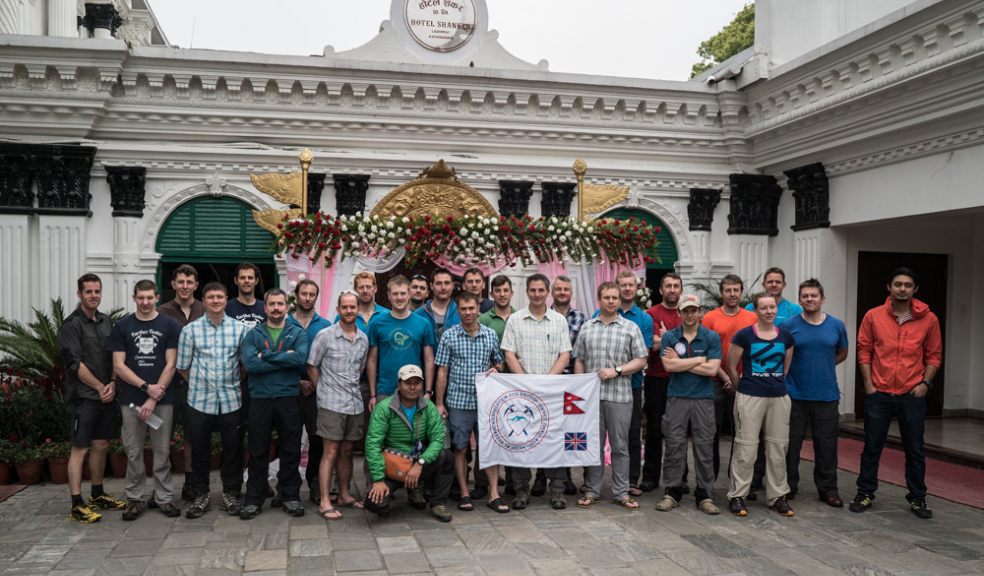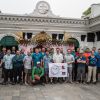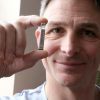
British services expedition to conduct pioneering medical research as they summit world’s 7th highest peak
A team of British military personnel has arrived in Nepal to make an alpine-style ascent of the North East ridge of Dhaulagiri, which at 8167m is the seventh highest point on earth.
Alongside this feat of mountaineering, the joint service team officially named the ‘British Services Dhaulagiri Medical Research Expedition 2016’ (BSDMRE ) will conduct pioneering medical research into the effects of altitude on the human body – the first time a military study has done so above 6000m and using implanted technology. The team will climb at extreme altitudes without oxygen, following 6 weeks of acclimatisation, aiming to make the summit around 20 May.
The main team making the gruelling 8167m ascent will be involved in two studies looking at the effect of an injection of iron on the body’s response to low oxygen levels and measuring heart rate and rhythm during the climb. In addition to its relevance to sport and exercise science, it is hoped that this data may provide insight into how the heart behaves in the face of disease or illness. The study involves the use of an innovative Medtronic Reveal device – a two-inch monitor which is implanted under the skin on the chest by a minor surgical procedure that stores and uploads data of each heart beat during the expedition by satellite link. This technique will allow the team to collect unique data from the heart during exercise at extreme altitude at low oxygen tensions, never previously achieved by a military study.
Speaking about the research, expedition leader Surgeon Commander Adrian Mellor said: “Until recently it has only been possible to collect heart rate data at rest due to the size and difficulty of obtaining a clear electrical recording from the heart at extreme altitudes. Now that we are able to do this, for the first time we will have accurate and sustained readings that will help us understand what happens to the heart rhythm during times of very low oxygen supply. This and other studies in conjunction with Leeds Beckett and Oxford Universities will help us better prepare soldiers for deployment at high altitude and understand the body’s response to critical illness.”
Robert Robson, CEO of the Royal Navy and Royal Marines Charity, said: “Medical research is vital for the future development of our Service personnel and we, as the Navy’s principal charity, have a mission to support projects like the Dhaulagiri Medical Research Expedition. The venture epitomises the ‘can-do’ attitude of our armed forces and will help improve training for personnel in the years to come.”
The BSDMRE expedition will also signify a new approach within military mountaineering. Until now military attempts on such high mountains have been attempted “siege style”. This usually involves repeatedly carrying loads and establishing camps ever-higher on the mountain, often supplemented with bottled oxygen. Informed by recent research, BSDMRE will instead climb in a lightweight “alpine” style, acclimatising on Damphus and then Tukuche peaks (6060m and 6900m respectively) before making a fast and light weight ascent of Dhaulagiri without oxygen from 2 intermediate camps over a 5 day period.
Mountaineers of all abilities and ranks are taking part in the expedition, promoting and developing the sport within the military and beyond. Trekking and development teams will explore trekking circuits and the smaller Tukuche Peak, whilst the main team will attempt the NE ridge of Dhaulagiri. The expedition, has the support of influential patrons: His Royal Highness the Duke of York, Mark Lancaster MP, the Second Sea Lord, Air Member for Personnel, Commandant General Royal Marines and the Surgeon General acting as Patron for the scientific programme.
See video: https://youtu.be/uXpTZhCCHuE





















